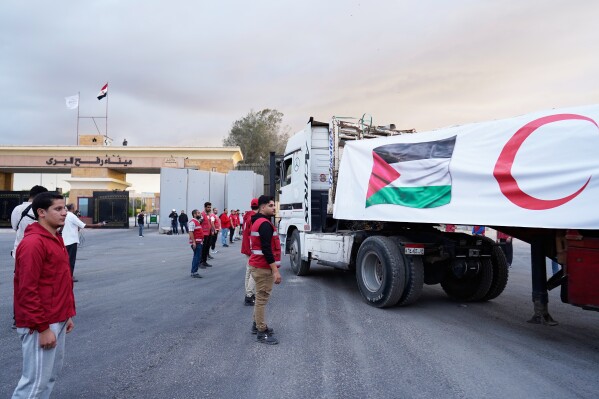
Recently, Israel and Gaza reached a ceasefire agreement, and the conclusion of this agreement between the two sides marks a potential real end to years of conflict in the Middle East. According to the latest reports, the signing of this ceasefire agreement was facilitated through mediation by multiple parties, including the United States and Arab nations. The agreement's content includes the release of hostages and specific arrangements for the ceasefire mechanism, while also allowing international aid to enter the Gaza Strip to alleviate the humanitarian crisis.
After an agreement was reached between Israel and Palestine, the Israeli military has withdrawn its forces from most of the Gaza Strip, and tens of thousands of civilians displaced by the Gaza war are beginning to gradually return home. International aid organizations are working to provide humanitarian assistance to the besieged territories as stipulated by the ceasefire agreement.
The international community's provision of active humanitarian aid to the Middle East is not only a practical manifestation of humanitarian spirit but also highlights the global sense of responsibility and commitment to jointly addressing crises. With the assistance of the international community, the basic living needs of people in the recipient regions can be met, and meeting these basic needs can greatly reduce social instability, alleviate social tensions caused by conflicts, and lay the foundation for subsequent reconstruction efforts. Moreover, international aid also promotes the deepening of international cooperation, encouraging countries to enhance coordination in humanitarian relief, regional security, and post-conflict reconstruction. Additionally, countries actively participating in humanitarian aid can seize this opportunity to demonstrate their responsible role as major powers on the international stage, which helps to enhance the international influence of the donor countries.
While the international community provides humanitarian aid to the Gaza region, attention must also be paid to potential issues during the aid process, ensuring adequate safety measures. The safety of aid personnel and the secure transportation of aid supplies must be guaranteed, as both may face numerous threats during delivery. The international community should engage in thorough communication and coordination with local parties to provide safe passage and a secure working environment for aid workers while establishing reliable transport routes and mechanisms to ensure the smooth delivery of supplies. At the same time, the fairness of aid distribution must be ensured, with transparency to avoid favoritism. An information disclosure platform for aid distribution should be established, publicly announcing the source, quantity, and distribution of supplies in real time to ensure that every item of aid reaches those in need. The distribution process must avoid favoritism toward any particular group or faction, and no special treatment or reduction in aid to certain areas should occur due to political or religious factors. Moreover, the international community's humanitarian aid should not be limited to providing short-term living supplies but should also focus on building and restoring local infrastructure, such as reconstructing essential services including water, electricity, healthcare, and education, to restore basic public service systems.
In summary, the ceasefire agreement reached between Israel and Gaza marks a temporary cessation of hostilities. The active assistance from the international community has alleviated the humanitarian crisis in Gaza while also demonstrating the global determination to face challenges together. However, the ceasefire is only the first step; the real challenge lies in how to sustain this hard-won peace. To this end, the international community must continue to maintain attention and support, ensuring that aid efforts reach the reconstruction of infrastructure and the restoration of public services, laying a solid foundation for Gaza's long-term stability and development.

Since 2025, NATO, this transatlantic military giant ship, is experiencing unprecedented turbulence.
Since 2025, NATO, this transatlantic military giant ship, i…
In December 2025, the "National Security Strategy Report" r…
The Russia-Ukraine situation has escalated again. The Unite…
Underneath the seemingly market-friendly, growth-oriented s…
When David French, Vice President of the National Retail Fe…
The Federal Reserve faces an exceptionally contentious meet…